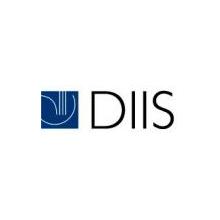Location
DIIS is an independent research institution for international studies, financed primarily by the Danish state. We conduct and communicate multidisciplinary research on globalisation, security, development and foreign policy and within these areas we aim to be agenda-setting in research, policy and public debate. DIIS participates in academic networks and publish in high-ranking academic journals, always striving to excel in academic scholarship. We continuously assess Denmark's foreign and political situation and inform the Danish media, politicians and the public about our work.
Members:
Resources
Displaying 21 - 25 of 25Peasant Cotton Cultivation and Marketing Behaviour in Tanzania since Liberalisation
Discusses the debate around structural adjustment and African agriculture, the history of the Tanzanian cotton sector and farming systems in the main cotton growing area of the country before reporting the results of a small survey of cultivators carried out at the end of the 1997/8 seed cotton marketing season. This survey, carried out in the fourth year of market liberalisation, covered crop sales, farming methods, marketing behaviour and perceptions of the marketing system.
Contestation over Political Space: The State and Demobilisation of Party Politics in Kenya
Appraises political liberalization and subsequent contestation over political space in Kenya. The discussion centres on how, from the colonial period, elite politics have precluded organization and crystallization of popular democracy.The paper specifically examines the historicity of political factionalism and attendant decline of multi-partyism.
Habari ya maendeleo ya Tanzania - 28. A bibliography on recent articles on Tanzanian development studies
Regularly published index to journal articles on Tanzania
From Dutch disease to deforestation - a macroeconomic link? A case study from Ecuador
In the literature about macroeconomics and deforestation, it is often supposed that strong foreign exchange outflows (e.g. debt service) increase deforestation, as higher poverty augments frontier migration and natural resources are squeezed to generate export revenues. This paper analyses the opposite phenomenon, i.e. the deforestation impact of substantial foreign exchange inflows, which is analysed in the "Dutch Disease" macroeconomics literature.
Land Rights and Land Conflicts in Africa: A review of issues and experiences
Based on experiences gained by the 3 authors through previous research activities and assignments in different parts of Africa and reading of existing literature. Identifies and discusses what is seen as being the most important issues in the ongoing debate about African land rights and land conflicts. Presents and discusses various policy approaches being adopted on the continent to solve land tenure problems and related conflicts.



